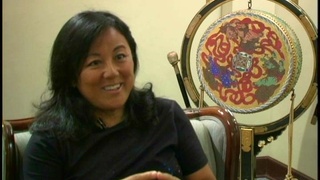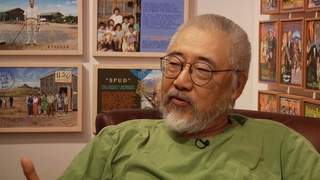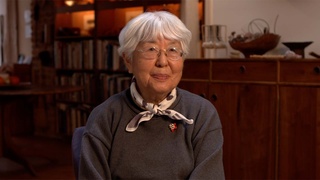Interviews
Erasing the Bitterness
But as to whether it accomplished what we were looking for, I think it did in the sense -- as we said in talking about this -- how it brought out the feelings. How it finally...people were able to, I think, put closure to the whole thing. I mean, it keeps going on. I mean, like these things, it keeps coming up, but I think it puts closure to the emotional part of any bitterness that at least the government apologized. At least there was admission by vast numbers of people that it was wrong. That you know, there wasn't disloyalty. I mean, being incarcerated, the implication that there was something that we had to be incarcerated for. You wiped that out.
And so I think, I think that yes, it did. There might be, there might have been some other things that could have been better maybe. But I think essentially our goals will be met and this is ongoing, too. I mean, we're still talking about it so you know, there is no point at which we say until we're gone I guess.
And maybe it'll take historians many more years to... that's, that's a question I have: will this be forgotten, or will this remain in history? Will it be said that in 1942 there were 120,000 people sent to concentration camps? But along with it, will it be said that through the efforts of this small minority, the government did apologize. I think that's an important part of history.
Date: September 26, 1997
Location: Washington, US
Interviewer: Becky Fukuda, Tracy Lai
Contributed by: Denshō: The Japanese American Legacy Project.
Explore More Videos

Donating clothes to the Japanese interns (Japanese)
(1900–1996) The mother of Nikkei Brazilian immigration

Interrogation by police (Japanese)
(1900–1996) The mother of Nikkei Brazilian immigration

Necessary apologies (Spanish)
(b. 1962) Peruvian Poet, Okinawan descendant

Getting measles at the camp
(b. 1938) Japanese American painter & printmaker

Differences between Parents
(b. 1938) Japanese American painter & printmaker



His mother’s experience of the camp
(b. 1938) Japanese American painter & printmaker

Grandfather's interrogations during World War II
(b. 1952) Former banking executive, born in Hawaii




The Emotional Toll of Being Incarcerated in Camp during World War II
(b. 1932) Nisei American stage, film, and TV actress

Sister’s Trauma from being Incarcerated during World War II
(b. 1932) Nisei American stage, film, and TV actress

